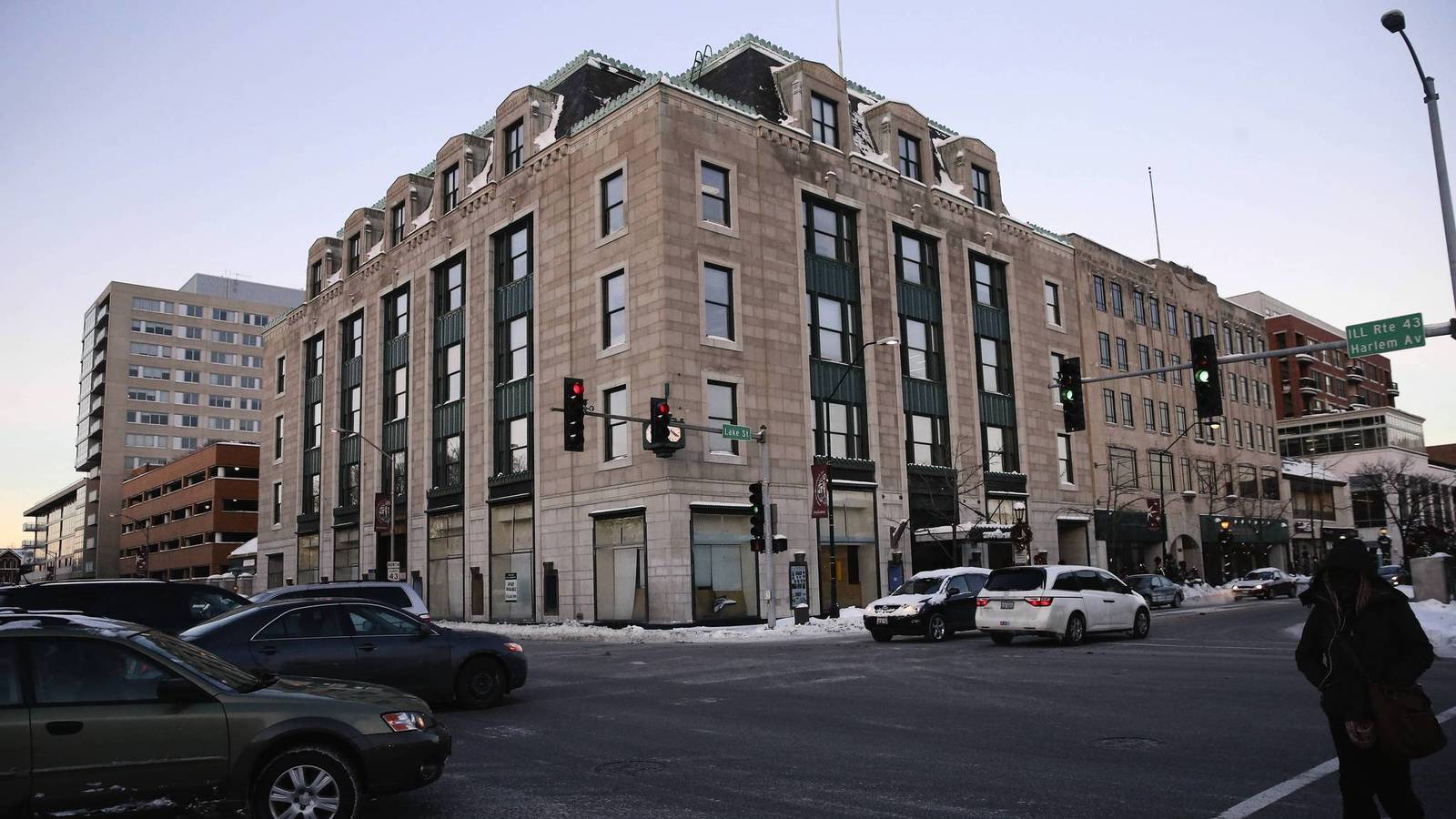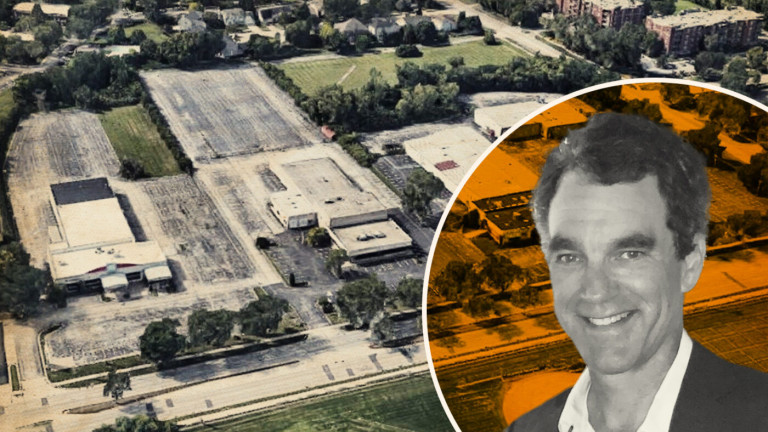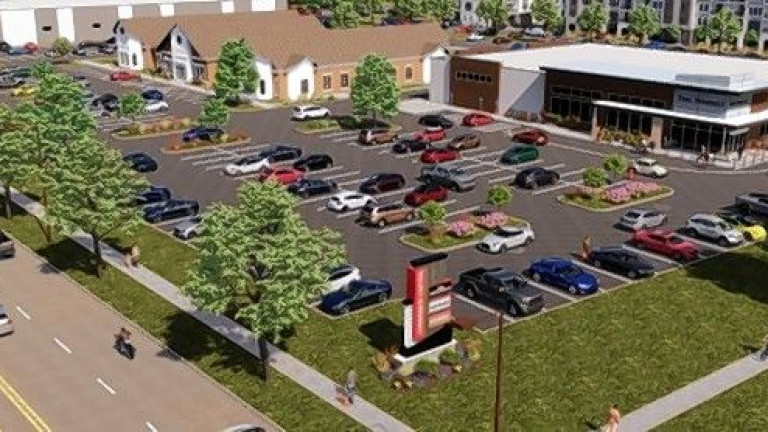Three years after Borders Books & Music started closing its doors amid bankruptcy, the impact of the national chain's exit is still evident around the Chicago area.
While some buildings remain shuttered, many have attracted new businesses, including grocery stores, clothing shops and even other bookstores.
Borders Group Inc. announced bankruptcy early in 2011, and by July that year closed the nearly 400 remaining stores. Some two dozen stores in the area shut down.
"Many communities are (still) dealing with this vacant hole in various places," said Robert Kallien, the community development director of Oak Brook.
Borders' exit from Oak Brook kicked off a flight of businesses from a shopping center in a high-traffic area, Kallien said. That left a 140,000-square-foot retail space more than two-thirds empty, he said.
"It seems like when Borders left, you know, they lost another big tenant, and it's kind of gone from there," he said.
Stores also remain empty in Chicago and in suburbs ranging from Bolingbrook and St. Charles to Oak Park, although a Sleepy's mattress store has filed papers to start the process of opening there.
In St. Charles, the shopping center that included the Borders store was foreclosed on in 2011, Kane County property records show. The Borders was not the first in the Main Street Commons center to go, but its vacancy continues to impact local commerce, said Russell Colby, planning division manager of St. Charles.
"Having a vacancy of that size and visibility is not helpful," Colby said.
But, in a possible sign of recovery, a mall across the street is undergoing a major renovation, he said. Colby hopes the Charlestown Mall renovation will draw traffic that spills over and helps fill the vacant spaces at Main Street Commons.
In other communities, the exit of Borders actually spurred the economy, said Scott Carr, executive vice president of Inland Real Estate Corporation.
Inland owns three former Borders stores, Carr said. The company saw signs of Borders' demise before it collapsed, and leased two of the stores — in Orland Park and Crystal Lake — to grocers, Carr said. The Orland Park store became a Whole Foods Market, and the Crystal Lake site now houses The Fresh Market. Both grocers draw more traffic than the book retailer, Carr said.
The company divided its third store, in Algonquin, into two spaces. Half Price Books and Family Christian Stores moved in. Inland leased the Algonquin store within a year of Borders' closing, Carr said.
"There's a lot of demand from retailers for space," he said.
A former Borders in Naperville also became a bookstore, called 2nd and Charles.
Geneva officials also discovered demand for a local Borders building. There, a combined marketing effort by city officials and the site's owner drew offers from several businesses, Geneva spokesman Kevin Stahr said. The owner settled on Ross, a clothing store, which opened in fall 2012, Stahr said.
In La Grange, a former two-story Borders store now houses five businesses — including an AT&T; store, Smashburger and a massage clinic. But the rush of new businesses brought complications, too, with the village's sign code. Eventually, the village changed its sign rules to accommodate second-story businesses like those in the La Grange Borders.
In Deerfield, a North Shore Medical HealthSystem proposal to put a medical office in a two-story former Borders building drew initial skepticism from village officials, said Jeff Ryckaert, the town's principal planner.
"We were a little concerned that this would not generate sales tax, but there are some benefits to medical uses," Ryckaert said.
But the village went through with it, he said. The employees at the center likely dine at nearby restaurants, he said. Also, the center draws people from all over the region who get a feel for Deerfield and might stop at other stores, he said.
In Chicago, many former sites have new tenants, but in the far South Side neighborhood of Beverly, a 25,000-square-foot building that used to house a Borders sits empty, along with a 107-vehicle parking lot.
"It was definitely a blow when they closed," said Marcia Walsh, housing and economic development director of the Beverly Area Planning Association.
The Beverly store was a major presence on a stretch of 95th Street that struggled during the economic downturn, Walsh said.
But recent market changes have sparked some hope. The store was recently sold to Shorewood Development Group following a TIF-funded streetscape project, said Walsh.
"Now that the economy is coming back, the retail will start coming back, too," Walsh said.
In other city locations, empty bookstores were quickly replaced, highlighting changes in what people want to buy.
Old Navy moved into a space Borders had occupied at State and Randolph streets, Chicago Loop Alliance Executive Director Michael Edwards said. And Gap moved into the space Old Navy vacated just down the street, he added.
"Old Navy and Gap are more reflective of the younger, urban consumer that probably reads a lot of books on their phone or iPad, but likes to get dressed up in bright clothes," Edwards said.
British clothing retailer TopShop opened at the Borders site on North Michigan Avenue in November 2011, said John Chikow, president and CEO of the Greater North Michigan Avenue Association.
"I would say that corner didn't miss a beat, and probably moved forward after the sale," Chikow said.
In Hyde Park, the University of Chicago purchased a former Borders store for about $7 million as part of a redevelopment effort on 53rd Street, university spokeswoman Calmetta Coleman said. The store now houses an Akira boutique clothing store and a CorePower Yoga studio, Coleman said. The owners of Longman & Eagle are planning to open a restaurant and music venue there called The Promontory, she added.











